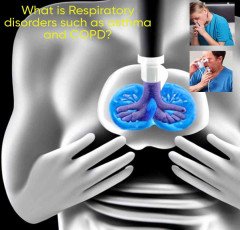
What is Respiratory disorders such as asthma and COPD ?

The respiratory system, which controls breathing, is afflicted by respiratory illnesses. Both asthma and chronic obstructive pulmonary disease (COPD) are common respiratory conditions.
The chronic inflammatory illness of the airways known as asthma makes breathing challenging. It is characterized by airway inflammation and constriction, which can lead to coughing, wheezing, chest tightness, and shortness of breath. Numerous things, such as allergies, exercise, cold air, and respiratory infections, can cause asthma.
A progressive respiratory condition called COPD results in airflow restriction and breathing difficulties. It often takes years to develop and is most frequently brought on by smoking. Emphysema, chronic bronchitis, or both may be brought on by COPD. Chronic coughing, wheezing, and shortness of breath are symptoms.
With the help of medication and dietary adjustments, both asthma and COPD can be controlled. In order to create a customized treatment plan, it is crucial for people with these disorders to collaborate closely with their healthcare provider.
Depending on the severity of the respiratory disorder, further therapies may be advised in addition to medication and lifestyle modifications. For instance, medication can be delivered directly to the airways using inhalers or nebulizers. When respiratory distress is severe, oxygen therapy may also be required.
People with respiratory problems need to take action to manage their health and avoid exacerbations. Avoiding triggers like cigarette smoke, pollution, or allergens, exercising frequently to maintain lung function, and staying up to date on vaccines are a few ways to do this.
Although respiratory illnesses like asthma and COPD can have a substantial negative influence on a person's quality of life, many sufferers can lead active and satisfying lives with the right management and care.
It's crucial for people with respiratory illnesses to keep an eye on their symptoms and get medical help if they get worse. Increased breathlessness, chest pain or tightness, trouble breathing while resting, or an increase in coughing or wheezing are all indications that a condition is getting worse.
Respiratory conditions can occasionally result in problems like pneumonia, heart failure, or respiratory failure. In order to manage their symptoms and avoid consequences, people with these diseases must collaborate closely with their healthcare professional.
Asthma and COPD are two of the most widespread respiratory disorders, but there are numerous other illnesses that can have an impact on the respiratory system, including lung cancer, cystic fibrosis, and pulmonary fibrosis. Individuals with any respiratory problems should seek medical assistance in order to identify the underlying reason of their symptoms and receive the proper care. Each of these disorders has different symptoms, causes, and treatments.
Other respiratory conditions can, in fact, have a wide range of causes and symptoms, as well as distinct therapies.
For instance, pulmonary fibrosis is a disorder in which the lungs' ability to function normally is compromised by the formation of scar tissue in the lung tissue.
This may result in weariness, a persistent cough, and shortness of breath. Despite the fact that there is no cure for pulmonary fibrosis, medicines, oxygen therapy, and pulmonary rehabilitation are treatments that can help control symptoms and enhance quality of life.
Another respiratory condition brought on by a genetic defect is cystic fibrosis. Chronic lung infections, coughing, and wheezing are brought on by this condition's accumulation of thick, sticky mucus in the lungs and other organs. Techniques for clearing the airways, medicines, and dietary adjustments are all part of cystic fibrosis treatment.
The cancerous condition known as lung cancer can result in coughing, chest pain, and breathing difficulties. It grows in the lungs. Depending on the kind and stage of the cancer, treatment options for lung cancer may include surgery, radiation therapy, chemotherapy, or targeted therapy.
A number of symptoms can be caused by illnesses called respiratory disorders, which damage the respiratory system.
Although COPD and asthma are two of the most widespread respiratory conditions, there are numerous more that require unique medical care. It's critical for people experiencing respiratory problems to contact a doctor in order to identify the underlying cause of their symptoms and obtain the necessary care.
Moreover, by altering one's lifestyle, many respiratory illnesses can be avoided or treated.
For instance, avoiding smoking and being around secondhand smoke can greatly lower the risk of getting lung cancer and other respiratory diseases like COPD. A healthy weight, regular exercise, and stress management can also aid in improving lung function and lowering the risk of respiratory issues.
Getting vaccinated against respiratory illnesses like influenza and pneumonia, which can be particularly harmful for those with respiratory diseases, is another crucial preventive measure. The risk of infection can be lowered and consequences can be avoided by vaccination.
Respiratory problem sufferers must be informed about their condition and collaborate closely with their healthcare physician to create a specialized treatment plan.
This may entail adhering to a pharmaceutical regimen, routinely checking for symptoms, and making necessary lifestyle adjustments. Many people with respiratory diseases can have healthy, happy lives with the right management and care.
For people with respiratory diseases, routine checkups with a doctor are particularly crucial. The healthcare professional may conduct lung function tests, check medications, and evaluate general health during these appointments. These checkups can aid in spotting any problems early and averting difficulties.
For those with respiratory diseases, pulmonary rehabilitation may occasionally be advised. A program called pulmonary rehabilitation uses exercise, education, and breathing techniques to enhance lung function and lessen symptoms. Additionally, it can aid people in controlling the anxiety and despair brought on by respiratory conditions.
Common illnesses with a variety of symptoms and effects include respiratory problems like asthma and COPD. However, many people with these diseases can have healthy, active lives with the right management and care. Respiratory illnesses can be prevented by taking preventive steps like quitting smoking, getting immunized, and leading a healthy lifestyle.
It's important to remember that respiratory problems can affect people of all ages, though some groups may be more vulnerable. People who smoke or are exposed to secondhand smoke, those who have a family history of respiratory conditions, and those who work in particular occupations that expose them to irritants or pollutants, for instance, may be more at risk.
Children with respiratory illnesses may need extra care because they can hinder their development and growth.
For instance, children with asthma may need ongoing lung function testing, medication, and dietary adjustments to control their symptoms. Children's respiratory specialists should collaborate closely with parents and caregivers to create a specialized treatment plan.
In addition, because lung capacity normally declines with age, older people may also be at increased risk for respiratory illnesses.
To lower their chance of getting these illnesses, older persons should keep physically active, maintain a healthy weight, and get vaccinated against respiratory infections.
Overall, respiratory conditions can significantly reduce a person's quality of life, but many people can lead active, healthy lives with the right management and care. It's critical for people experiencing respiratory problems to contact a doctor in order to identify the underlying cause of their symptoms and obtain the necessary care.
Furthermore, taking preventative steps like quitting smoking, getting immunized, and leading a healthy lifestyle can help lower the risk of having respiratory illnesses.
Also noteworthy is the potential economic impact that respiratory illnesses may have. These illnesses can be expensive in terms of medical bills, lost productivity, and lowered quality of life. The American Lung Association estimates that the annual cost of COPD in the United States is $50 billion.
It's crucial to concentrate on early detection and prevention in order to lessen the financial burden that respiratory illnesses cause. This include encouraging healthy habits like quitting smoking and keeping a healthy weight, as well as giving high-risk people access to healthcare services and screening programs.
New cures and treatments are being developed for respiratory illnesses as a result of continuous research. For instance, various drugs that address the underlying causes of COPD and asthma are now being developed with the aim of easing symptoms and preventing exacerbations.
Respiratory illnesses are widespread conditions that can negatively affect a person's quality of life as well as the economy. To lessen the impact of these illnesses, preventive measures, early detection, and ongoing research are all crucial.
To identify the underlying cause of their symptoms and receive the necessary care, people experiencing respiratory problems should contact a doctor.
Respiratory illnesses can have a substantial influence on mental health in addition to the economic costs. Living with a chronic respiratory condition can be unpleasant and result in social isolation, sadness, and worry. As a result, it's crucial to address these illnesses' psychological components as well.
There are a number of techniques that can help respiratory patients manage stress and enhance their mental health. These might include methods for unwinding including yoga, mindfulness meditation, and deep breathing exercises. People with respiratory problems can benefit from support groups because they foster a sense of belonging and understanding.
Healthcare professionals can be crucial in helping those with respiratory diseases with their mental health requirements.
Regular checkups that include an anxiety and depression screening as well as any necessary referrals and treatments can assist to enhance general health and quality of life.
It's crucial to address both the physical and psychological effects of respiratory problems because they can have a big impact on mental health. For people with respiratory diseases, relaxation methods, support groups, and mental health services can all be helpful. The demands of their patients' mental health should be taken into consideration by healthcare professionals, who should also offer the proper assistance and referrals.
It is more crucial to emphasize the global reach of respiratory illnesses. The World Health Organization claims that respiratory conditions are a major global cause of death and disability. According to estimates, asthma claimed the lives of 0.4 million individuals in 2016 and chronic obstructive pulmonary disease (COPD) claimed the lives of 3.2 million people.
In low- and middle-income nations where access to healthcare services and efficient treatments may be constrained, the burden of respiratory illnesses is particularly significant. In these groups, respiratory illnesses can develop and worsen due to environmental factors such air pollution and indoor smoke from cooking and heating.
Improved access to healthcare services and efficient treatments, the promotion of healthy habits like lowering exposure to environmental pollutants and quitting smoking, and addressing social and economic factors that contribute to the development of these conditions are all part of the effort to lessen the burden of respiratory disorders globally.
In the end, respiratory illnesses constitute a serious global health problem, and efforts to lessen their impact must take into account a number of elements, such as healthcare access, environmental factors, and social and economic issues.
It's critical that people who experience respiratory symptoms get medical help, and that healthcare professionals offer the proper support and care. In order to lessen the effect of respiratory illnesses globally, ongoing research and international cooperation are also crucial.



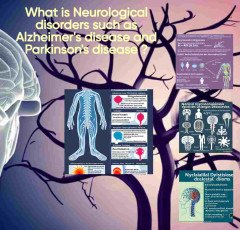
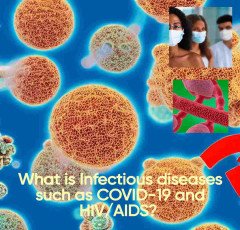
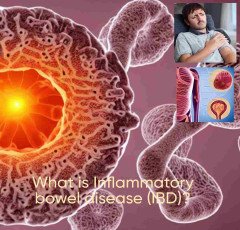




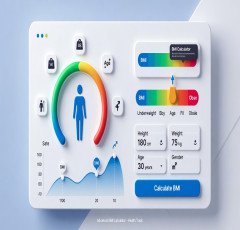



 Best Selling Books
Best Selling Books  Amazon Best Selling Products
Amazon Best Selling Products  The Secret Email System
The Secret Email System  Artificial Intelligence
Artificial Intelligence  NordVPN
NordVPN  Men Clothing
Men Clothing  RPM 3.0
RPM 3.0  NordPass
NordPass  Unreal Engine 5 For Beginners Learn The Basics Of Virtual Production
Unreal Engine 5 For Beginners Learn The Basics Of Virtual Production  Graphics & Design
Graphics & Design  Favorite Company (Cuelinks)
Favorite Company (Cuelinks)  Smart Doorbell
Smart Doorbell  ASUS Laptop
ASUS Laptop  BEST SELLER TOP10
BEST SELLER TOP10  Creative Brief For Video Shoot
Creative Brief For Video Shoot  Online Marketing
Online Marketing  Sennheiser
Sennheiser  Top Rated From Amazon
Top Rated From Amazon  Unlimited access to classes on illustration, photography, design, film, music
Unlimited access to classes on illustration, photography, design, film, music  NordLocker
NordLocker  Women Fashion
Women Fashion  Hot Bags For Pain Relief
Hot Bags For Pain Relief  Only For The United States
Only For The United States  SEO Checklist
SEO Checklist  SOFAS
SOFAS  TitTok Revolution
TitTok Revolution  Best Sellers On Amazon
Best Sellers On Amazon  Acer Laptop
Acer Laptop  Hello Theme
Hello Theme  1150+Trendy kids coloring pages Bundle
1150+Trendy kids coloring pages Bundle  One World Collection
One World Collection  Best Robotic Vacuum Cleaners
Best Robotic Vacuum Cleaners  Online Technology Classes
Online Technology Classes  The Click Engine
The Click Engine  Best Home Appliances
Best Home Appliances  ELECTRONIC ACCESSORIES
ELECTRONIC ACCESSORIES  ASPINAL LONDON
ASPINAL LONDON  All Wireless Products
All Wireless Products 
















